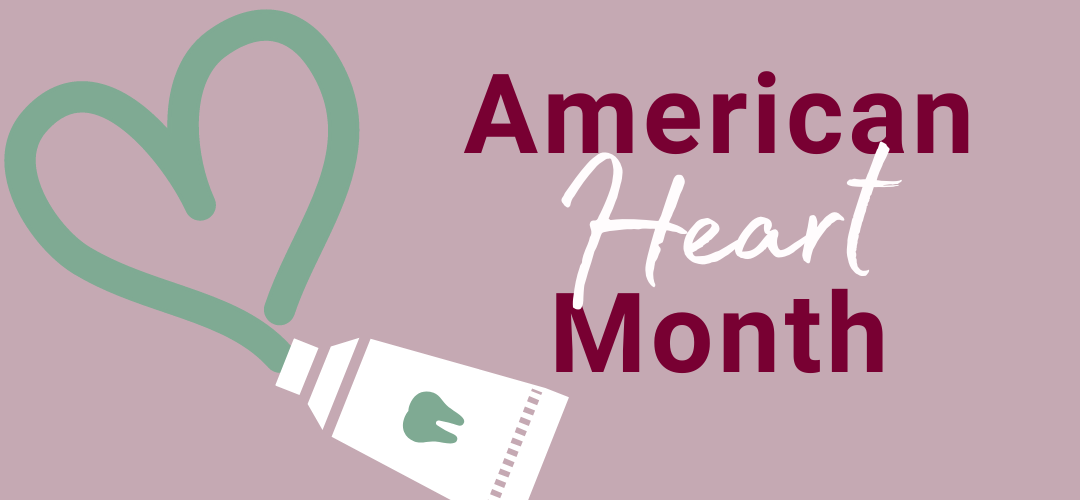Whether you know it or not, your mouth and heart are linked. Your heart – an organ about the size of a fist – pumps blood through your body. Your mouth – made up of numerous components, including your teeth – shares the bloodstream with your heart. Therefore, your oral hygiene could directly affect your heart health.
Can my Oral Health Affect my Heart?
Our mouths are loaded with bacteria—some good, and some harmful. Without proper oral hygiene, the harmful types of bacteria can cause cavities, gingivitis, and periodontal (gum) disease. Gum disease is a chronic inflammatory disease that affects the gum tissue and bone supporting the teeth. If left untreated, harmful bacteria in the mouth could enter your bloodstream through inflamed gums and cause additional issues—such as heart disease.
Numerous studies have linked poor oral health to heart disease. Although expects can’t yet agree if there is a direct connection between gum disease and heart disease, there are several indications they may be linked due to the inflammatory properties of both diseases. In fact, those with gum disease are almost 50 percent more likely to have a heart attack, according to the American Heart Association.
Am I at Risk for Heart Disease?
According to the Centers for Disease Control and Prevention (CDC), heart disease is the leading cause of death in the United States. About 1 in every 4 Americans die from heart disease each year. Knowing these facts along with the risks can help you identify if you’re at risk for heart disease.
Key risk factors include high blood pressure, high cholesterol, and smoking. There are also several medical conditions and lifestyle choices that can put you at risk, including:
- Diabetes
- Overweight and obesity
- Unhealthy diet
- Physical inactivity
- Excessive alcohol use
While scientific evidence hasn’t yet proven a cause-effect relationship between oral health and heart disease, researchers have uncovered oral bacteria within the fatty deposits of people with atherosclerosis – a disease in which plaque builds up in the arteries. Left untreated, the deposits have the potential to narrow arteries or break loose and clog them – causing a heart attack or stroke.
What are the Symptoms and Warning Signs of Gum Disease?
According to the American Academy of Periodontology, over half of American adults suffer from gum disease. Research has shown that gum disease is associated with other chronic inflammatory diseases—such as diabetes and cardiovascular diseases. Therefore, it’s important to know the symptoms and warning signs.
- Red, swollen, or tender gums
- Bleeding while brushing, flossing, or eating hard food
- Receding gums
- Loose or separating teeth
- Persistent bad breath
- Pus between gums and teeth
- Sores in your mouth
How Do I Protect Against Gum Disease?
Although more than 80 percent of American adults have some form of gum disease, it is preventable. It’s important to have a good oral hygiene routine. Adding these habits to your routine can really make a difference.
- Brush your teeth and tongue twice a day
- Floss at least once a day
- Swish with mouthwash
- See your dentist every six months for a checkup and cleaning
- Minimize sugary beverages
- Eat a well-balanced diet
Make the Connection Last
While they might not be directly connected, your heart and mouth rely on each other a great deal. Both your heart and mouth love when you practice good oral hygiene and eliminate risk factors. Removing harmful bacteria from your mouth ensures it won’t slip into your bloodstream and affect your heart. In addition, show your mouth and heart some extra love by reducing risk factors – quit smoking, increase intake of fruits and veggies, control your blood pressure, and eat low-sugar foods and drinks.
It’s important to stay up to date with your dental exams to ensure your oral health is in tip-top shape. If it’s been a while since you visited the dentist or you’re experiencing any of the symptoms or warning signs discussed in this article contact Roseman Dental to schedule a dental exam.



